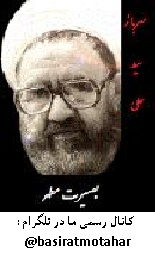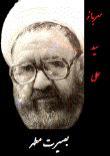The history of Islam concerns the religion of Islam and
its adherents, Muslims. "Muslim" is an Arabic word
meaning "one who submits to God". Muslims and their religion
have greatly impacted the political, economic,
and military history of the Old World, especially the Middle
East, where its roots lie. Though it is believed by
non-Muslims to have originated in Mecca and Medina,
Muslims believe that the religion of Islam has been
present since the time of the prophet Adam. Muslims
believe that prophets Noah, Abraham, Moses, Jesus,
among others, were all Islamic prophets, and they have
equal veneration in the Qur"an. The Islamic world
expanded to include people of the Islamic civilization,
inclusive of non-Muslims living in that civilization.
A century after the death of last Islamic prophet Muhammad, the Islamic empire extended from Spain in the west to Indus in the east. The subsequent empires such as those of the Abbasids, Fatimids, Almoravids, Seljukids, Ajuuraan, Adal and Warsangali in Somalia, Mughals in India and Safavids in Persia and Ottomans were among the influential and distinguished powers in the world. The Islamic civilization gave rise to many centers of culture and science and produced notable scientists, astronomers, mathematicians, doctors, nurses and philosophers during the Golden Age of Islam. Technology flourished; there was investment in economic infrastructure, such as irrigation systems and canals; and the importance of reading the Qur"an produced a comparatively high level of literacy in the general populace.
In the later Middle Ages, destructive Mongol invasions from the East, and the loss of population in the Black Death, greatly weakened the traditional centre of the Islamic world, stretching from Persia to Egypt, and the Ottoman Empire was able to conquer most Arabic-speaking areas, creating an Islamic world power again, although one that was unable to master the challenges of the Early Modern period.
Later, in modern history (18th and 19th centuries), many Islamic regions fell under the influence of European Great powers. After the First World War, Ottoman territories (a Central Powers member) were partitioned into several nations under the terms of the Treaty of Sèvres.
Although affected by ideologies such as socialism and secularism during much of the 20th century, the Islamic identity and the dominance of Islam on political issues intensified during the early 21st century. Global interests in Islamic regions, international conflicts and globalization changed the type of Islamic influence on the contemporary world.[1] In the contemporary period, a set of ideologies holding interpretations of Islamic texts that advocate the unification of religion and state has spread, but the ideology has been criticized.
برچسب ها : بسیج , 92 , بسیج دانشجویی , رهبر , بصیرت , مطهری , شهید , پیشنهاد , دانشجویی , رهبر عزیزم=داستان , رضا نصیری , معظم , انقلاب , کشتی , شهید مطهری , مطهر , دانلود , حجاب , استادشهید مطهری , چادر , بیانات رهبری در رابطه با حجاب , رهبری و حجاب , اقا حجاب , اختلاط دختر و پسر در زمان امام علی (ع) , خاطره حاج آقا قرائتی از دیدن یک دختر زیبا در اتاق رئیس! , با صدور بیانیه ای بسیج دانشجویی دانشگاه علوم پزشکی تهران اعلام ن , ولی امر مسلمین جهان حضرت آیت الله العظمی امام خامنه ای , آژیر خطر , رابطه حجاب با تکامل اجتماعی , رابطه حجاب و مرگ بر آمریکا !؟ , تبریک شب یلدا , حجاب= , مادرم من رو قسم می داد که مثل خواهرم حزب اللهی نشم. , داستانی جالب و واقعی , چادر حجاب برتر , حجاب و عفاف در قرآن کریم , دانلود اهنگ جدید حامد زمانی با نام گزینه های روی میز به مناسبت 2 , رابطه حجاب و عفاف , کارکردهای عفاف و حجاب در اسلام , هلال مطهر , طرح ولایت , گرامیداشت روز معلم , روز معلم , استخدام , Hijab , Quran , Surah , برگزاری کلاس های اموزشی قران کریم در اهر , History of Islam , غصب املاک فلسطینیان , ترفندها , motahar , 40 , بصیرت کر , ;HKHG , KANAL , کانال تلگرام , vote , rafsanjani , الامام الحسین , Histستها , فلسطینیahar , lwhoseyn , حس&حسین بصیرت ,



















 توسط :
توسط :